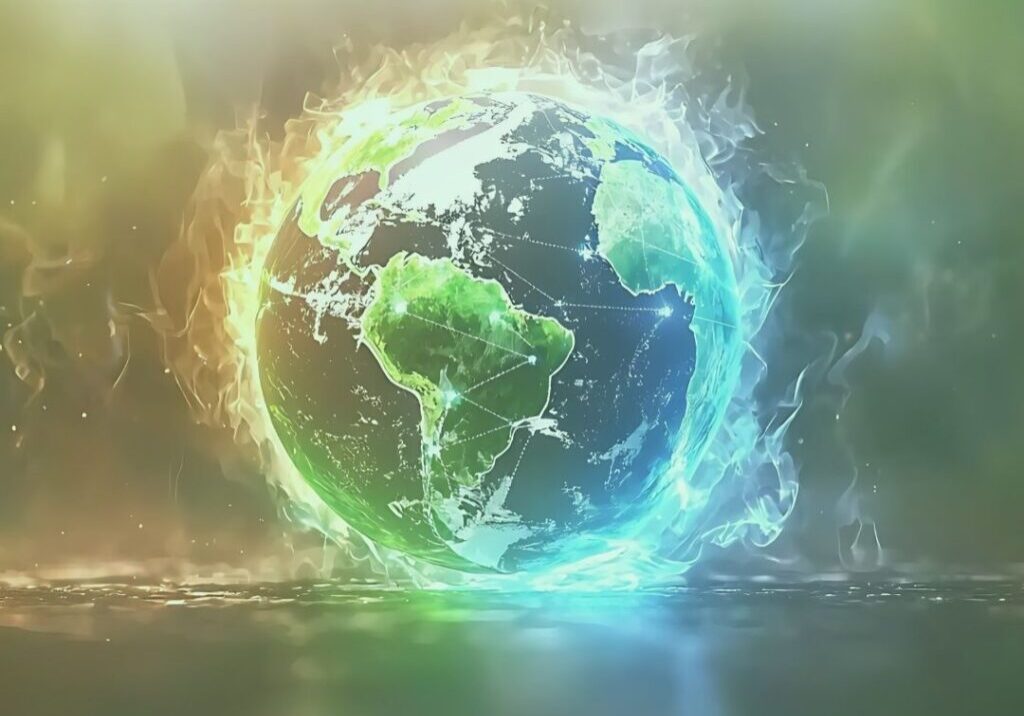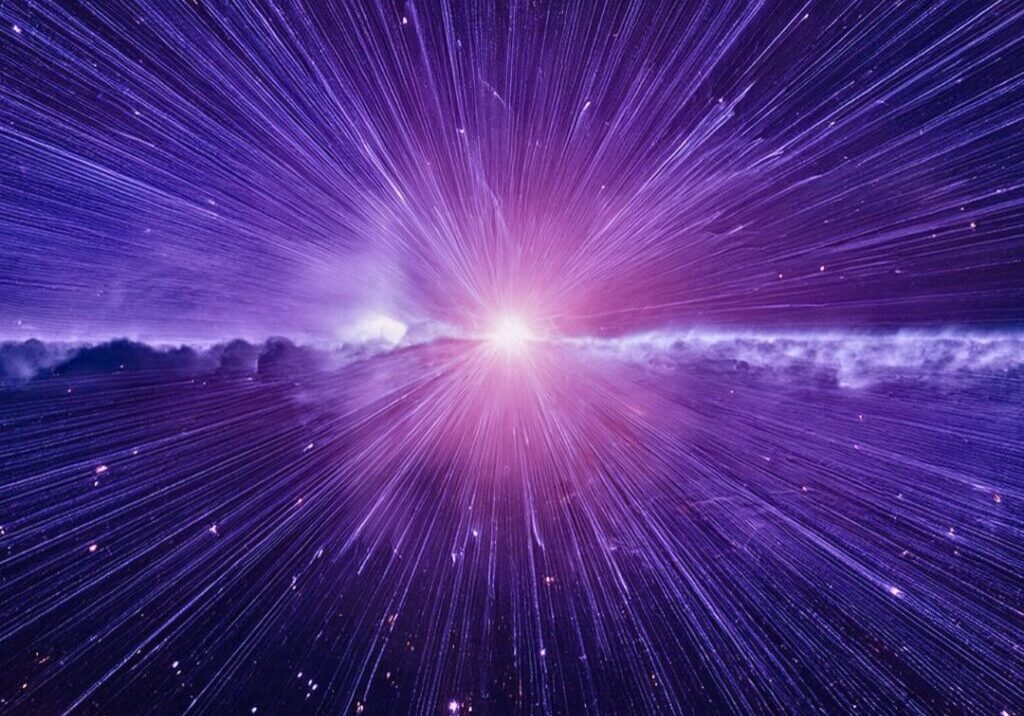Towards a renewal of the whole
We are living on a fragile planet right now. The forces of resistance are felt all around us as we seek to hold on to our personal wealth, privileged security, political freedom and religious beliefs. But the structures that gave rise to these systems are giving way to something new, a type of interconnectedness that is less bounded, more open, informationally-driven and global in scope. Teilhard de Chardin envisioned a new paradigm at the dawn of the twentieth century and framed the new paradigm along the lines of evolution. Evolution, he wrote, is a general paradigm to which all systems must tend. What would the world look like if all systems – religious, political, economic, social—followed the lines of evolution? How would they be structured? What kind of rules would they follow? How would they relate to one another?
The two major forces that influence the shape of the world are science and religion. Alfred North Whitehead, a prominent mathematician and philosopher, wrote in early twentieth century that “the future course of history depends upon the decision of this generation as to the relations between science and religion.” Pope Francis in his encyclical Laudato Si’ has basically said the same thing, religion and science need to be brought into a harmonious relationship of mutual enrichment. The way toward unity in the global world depends on the relationship between science and religion.
But how shall we move forward? Here is where sharp differences appear. There is a group of religion scholars who argue for a wider Darwinian perspective on evolution and the intrinsic values of nature. Some of these scholars have made concerted efforts to deconstruct Teilhard’s evolutionary paradigm, indicating that its anthropocentric focus actually thwarts a viable ecological ethics by homogenizing evolution into a grand narrative (one could look, for example, to the writings of Lisa Sideris or Willis Jenkins). Others opt for “non-overlapping magistera” indicating that science and religion have virtually nothing in common (ex. Stephen Jay Gould.) Without trying to undermine their scholarly concerns, I would like to highlight why Teilhard’s evolutionary paradigm is essential for our time. To do so is to begin with the Christian doctrine of creation.
The doctrine of creation is not about nature per se; it is about the relationship between God (Creator) and creatures, and we can locate its beginning in the first chapter of Genesis: “In the beginning, God created the heavens and earth and the earth was a formless void.” The author of Genesis used the word “bara” to denote a work of God altogether sui generis, independent of any preexistent material and realized without effort on the part of God who wills it. The word “bara” means that divine creativity has no conditions or premises; creation is absolutely new. When we read: “In the beginning God created heavens and earth” we affirm that:
- The eternal God gave a beginning to all that exists outside of God’s self.
- God alone is Creator.
- The totality of what exists (“heavens and earth”) depends on the One who gives it being.
- the order of creation is understood in terms of final causality, that is, it is directed in its movement toward God.
This is the theological basis for the doctrine of creation and it is the theological basis for Teilhard’s ideas on evolution as well. He was concerned about a viable God-world relationship, not as an abstract relationship but a relationship grounded in the concrete physical world. The French Cardinal Henri du Lubac noted in his book The Religion of Teilhard de Chardin that Teilhard saw himself in the tradition of the Greek Fathers of the Church. Just as the ancient writers sought to understand the relationship between the human person [microcosm] and the wider physical cosmos [macrocosm] so too did Teilhard. What I find missing in a lot of ecological discussions today is the classical relationship of microcosm and macrocosm. I think it is worth revisiting this relationship if we are to appreciate Teilhard’s cosmic narrative.
The notion of a whole order of things—cosmos—arose among the ancient Greeks during the axial age which gave way to a new level of consciousness. In fact, it is in the axial age that the word “cosmos” emerged. Beginning in the Hellenic Ages, the universe came to be seen existing apart from human action and possessing a kind of wisdom that humanity did not have. The word “cosmos” rose among the Greeks and referred to the “whole” or that which makes the world a “world.” The pre-Socratic philosopher Heraclitus of Ephesus (c. 540-c. 480 BCE) referred to ta panta (the “all things”), which another pre-Socratic, Empedocles (c. 490-430 BCE), transformed into the singular to pan, or “the all.” The Greeks’ most innovative step was the formulation of a special word for the world. The word they chose was kosmos, first used in Homer’s Iliad to mean “in good order” or the order that which gives rise to beauty, such as an ornament (hence, the word “cosmos” is related to “cosmetics!”) (Wisdom of the World, pp. 19-20). The separation of “human” from “world,” that is, through a higher consciousness of self-reflection, allowed the ancient Greeks to discover a “cosmos” that could provide humans with models of perfection to gaze upon (cosmology) and natural spaces to define and conquer (cosmography). In this context, “world” was as much a concept as a concrete place; it meant not just physical creation but also the environment in which humans functioned. The cosmos became a mirror for human action. The human was not simply in the world; the world was also in the human. It gave rhythm to our history, defined our aspirations and directed our physical structure. The human person was to contemplate superior things, intelligible things, whose harmonious disposition revealed profound mysteries.
Greek cosmology influenced thinkers of late Antiquity and the Middle Ages; the cosmos influenced what one ought to be and what one was to do. Justice was the result of the agreement between cosmos and humanity, each with its own nature, instilled by God. Remi Brague writes: “Cosmology had an ethical dimension. In turn, the task of transporting such good into the here below where we live enriched ethics with a cosmological dimension.” (Wisdom of the World, p. 121) This notion of cosmological wisdom carried over into the Middle Ages. In the twelfth century, the school of Chartres had some of the leading natural philosophers [proto-scientists] of the day, such as William of St. Thierry. Their writings on the harmony between microcosm [person] and macrocosm beautifully encapsulated the meaning of cosmos as the intertwining of natural order, human order, moral order and spiritual order. The thirteenth century theologian Bonaventure who was influenced by the School of Chartres, among others, described creation as a limited expression of the dynamic love among Father, Son, and Spirit exploding into a “thousand forms” in the universe. He spoke of creation as a mirror of divinity. Just as light strikes the panes of glass and diffracts into an array of colors, so too the divine light emanates through the divine Word of God and diffracts in the myriad things of the universe; everything reflects the divine light.
Teilhard’s vision is deeply consonant with the ancient microcosm-macrocosm paradigm but framed according to the paradigm of evolution. We are not an inert mass of entangled electrons blindly hurtling towards an unknown future. Rather we are grounded in the incomprehensible divine mystery which is God, and thus our contingent lives are opened to and embraced by the infinite, unbounded love of God which is eternal, divine and holy. Teilhard grasped this integral relationship between God and world and indicated that we must know the whole of which we are a part; then we must surrender to the whole which empowers our lives; finally, we must let go into the whole if we are to become one in Christ.
Only when we know what we are about will we know what to do and how we are to act. The ethical question should never be our first question. Rather, the first question is the question of being itself: What am I? If we can begin to answer this question in light of the whole with God as Creator and ground of all life, then we will have a better sense of what we are to do and how we are to act. For to know oneself in God is to know oneself in all things, and this is the basis of true ecology.
 View print-friendly version
View print-friendly version
4 Comments
Related Posts

The Earth Groans, AI Grows: Who Guides the Flame?
In this critical moment of planetary history, where ecosystems collapse, artificial intelligence proliferates, and human meaning trembles on the edge of uncertainty, we are faced with a profound question: What kind…


I am convinced that the Omega Center is the way station that I need to be at in this point in time. I’ve committed to taking up the conversation and advancing this “good news”. Thank you for your work in building upon Teilhard in an intelligible and accessible way for those less familiar with the physical and biological sciences such as myself!
I am so grateful for having found your site. It is a blessing for survival in these troubled times. I am intrigued by the challenge of finding out”what am I”? What is my ecology?
Do you have recommendations for reading ?
Absolutely Beautiful, a great meditation, prior to silence.
Thank you for making these presentations available on line for people who cannot get to the site.
I find your statements very interesting and exciting. I read Teilhard in the 70’s and I loved his Metaphysics I am grateful for this opportunity to explore his ideas further with new insights. I have studied Philosophy and Theology and was an Educator now retired. The Omega Center has offered me opportunities for further growth and contemplation. I support what you are doing and will help in anyway that I can. I am currently an Associate with the Allegeny Franciscans and have discussed your presentation with others. Again, Thank You!